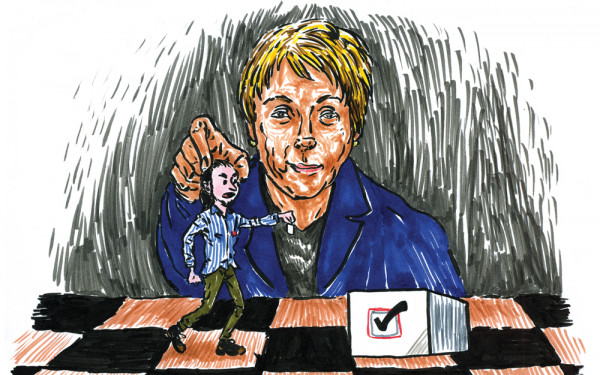Concordia to Present Charter Stance to National Assembly
The last university in Montreal to officially oppose Bill 60, Concordia will be the first to present its position at hearings in Quebec City on Thursday.
Concordia delegates will face the National Assembly at 2 p.m. to elaborate on a Dec. 17 statement that disagreed with key elements of the bill, also known as the Charter of Quebec Values.
“Many thought we were very late to the party,” said Concordia President Alan Shepard at a university Senate meeting on Friday. “Turns out by the fact that we’re testifying next week—and this [consultation] goes on until March—that we were probably one of the first to submit.
“Just like term papers or final exams, they all came in at the last minute.”
The hearings on the bill began on Jan. 14 and are scheduled until Feb. 7.
Benoit-Antoine Bacon, provost and VP Academic Affairs, and Roger Côté, VP Services, were chosen to present the university’s case.
“This will be a stressful moment for them because the various political parties will be in the room. Everyone will try to score points off one another with us as the vehicle or medium by which that might take place,” Shepard said. “We don’t want to be taken advantage of by any political party in terms of how we present our ideas.”
Although it supports elements of the bill, the Concordia administration criticized the proposed ban on visible religious symbols.
“You can agree with the principles of a lay state, equality between men and women, but the ostentatious religious symbols ban is a real problem for us,” said Chris Mota, university spokesperson.
The ban would affect more than 7,000 full- and part-time employees of the university, hindering research and student recruitment, according to an official statement by Concordia.
“We need to have a community that’s really diverse—and we do and it’s a huge strength for us—and I would do everything that I can to protect that diversity and to celebrate it,” said Shepard in an interview with The Link last fall.
Concordia also takes issue with the charter on other grounds, Mota said.
“Universities are built on democratic thinking, freedom of thought and expression,” she said. “Having that kind of law governing universities would be infringing on their autonomy.”
The university officially registered its disapproval after receiving over 200 emails from students, faculty, and staff.
“This is a bill that people were passionate about on both sides. We wanted to hear from our community, and that takes time,” Mota added.
The university’s position was endorsed by 11 associations and student groups, including Concordia’s full- and part-time faculty unions, the Graduate Students’ Association, and the Concordia Student Union—which first voiced its opposition to the charter in a unanimous council vote in September.
Concordia’s hour-long presentation at the National Assembly on Thursday will be followed by a brief question-and-answer period. The entire debate will be webcast on the National Assembly website and Radio-Canada.ca.
with files from Colin Harris and Andrew Brennan



_600_375_90_s_c1.jpg)

_600_375_90_s_c1.jpg)
